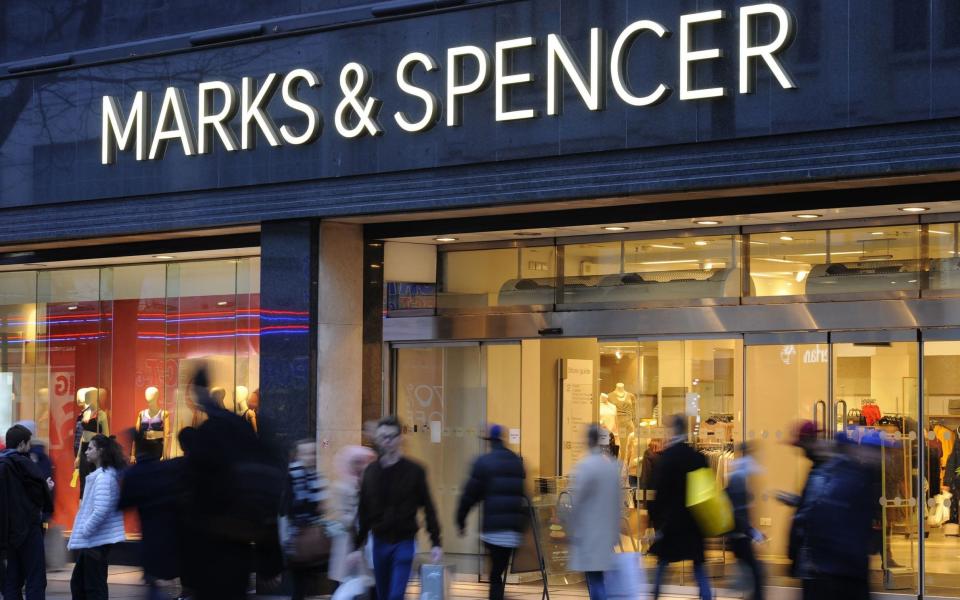M&S slashes the price on everyday essentials amid cost-of-living crisis

Marks & Spencer is slashing the price of everyday essentials as the High Street stalwart tries to win over customers amid the cost-of-living crisis.
The retailer on Monday announced lower prices across its “Remarksable” range of products, which includes milk, bread, mince, pasta, fruit and other staples.
Following the latest changes, M&S said a four-pint bottle of semi-skimmed milk now costs £1.15 while a loaf of sliced white bread costs 60p.
A 500g pack of mince also costs £3, while 500g of spaghetti costs 70p and one kilo of bananas costs 78p.
The retailer said it is also introducing “family dine in” deals at shops nationwide, for example offering a roast dinner with three sides and a dessert for £20 this Easter.
It comes as cost-conscious shoppers hunt for bargains as inflation squeezes their incomes.
Analysts said the move was a signal to M&S customers, to prevent them switching to discounters such as Aldi and Lidl.
It comes as cost-conscious shoppers are increasingly hunting for bargains as inflation squeezes their incomes.
One analyst said the retailer’s move was likely intended as a signal to customers that it is paying attention to these cost pressures.
At the same time, M&S has been trying to improve earnings from its food business in the longer term.
These efforts, including slimming down key product ranges and selling more frozen food, resulted in the retailer’s market share growing faster than the rest of its rivals at the end of last year.
On Monday Stuart Machin, chief operating officer at M&S, said: “As we transform M&S Food, we have invested significantly over the last three years in making our ranges even better value, while protecting the things our customers love most – our market leading sourcing standards and our delicious, innovative products.
“We want M&S to be more relevant, more often and that’s why now is the right time to go further, by investing in the value of everyday items families buy week-in week-out, without compromising the quality our customers want and expect from us.”
M&S said all of its Remarksable products are benchmarked in price against those at rivals and had a “quality point of difference”.
Richard Hyman, an independent retail analyst, said the announcement was meant as a signal showing the grocer is mindful of inflationary pressures on household incomes.
It comes at a time when big supermarkets such as Tesco have warned that rising costs will inevitably push food prices higher across the board.
Mr Hyman explained: “A food retailer like M&S is always going to be more expensive to shop at than others but they can afford to be more expensive because the quality is superior, so in that sense there is nothing wrong with it.
“Customers understand that too and they will not be shopping at M&S for low prices.
"But even so, in food retail it is still very important to provide reassurance that your products represent good value.
“Value is not just about price. It has to do with the relationship between quality and price.
“So these changes to the Remarksable range are probably more about communication than substance. But of course in groceries, that price reassurance is still really important.”

 Yahoo Finance
Yahoo Finance 